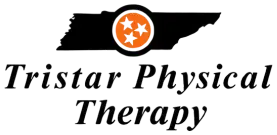Empowering Literacy through Occupational Therapy
Occupational therapy aims to empower individuals by promoting independence and enhancing their quality of life. One way occupational therapists do this is by using assistive technology to aid in literacy activities. For example, text-to-speech software can read written materials aloud for individuals with visual impairments. Meanwhile, speech-to-text software allows individuals with physical impairments to dictate their written work. These tools help individuals with disabilities overcome barriers to reading and writing independence.
Another way occupational therapy empowers literacy is through adaptive techniques. Occupational therapists work with individuals to develop strategies that accommodate their unique needs. For instance, a child with dyslexia may benefit from using colored overlays to reduce visual stress when reading. Alternatively, an individual with poor handwriting may benefit from using a keyboard to complete written assignments. These techniques empower individuals to engage in literacy activities that were previously challenging.
From Struggling to Flourishing: OT’s Impact on Reading and Writing
Occupational therapy has a significant impact on individuals’ reading and writing abilities. For children with developmental delays, occupational therapy can help promote foundational skills, such as letter recognition and phonological awareness. For individuals with physical disabilities, occupational therapy can help with fine motor skills needed for writing. Meanwhile, for individuals with cognitive disabilities, occupational therapy can promote comprehension and critical thinking skills needed for reading and writing.
Furthermore, occupational therapy is not limited to clinical settings. Occupational therapists can work with individuals in their homes, schools, and workplaces to promote literacy skills. By working collaboratively with families, educators, and employers, occupational therapists can create a supportive environment that nurtures literacy development. Ultimately, this empowers individuals to achieve their goals, whether that’s reading a novel or writing a job application.
In conclusion, occupational therapy plays a vital role in empowering individuals with the skills and tools needed to navigate everyday literacy activities. By using assistive technology, adaptive techniques, and promoting foundational skills, occupational therapists help individuals overcome barriers to reading and writing independence. Through collaborative partnerships, occupational therapists can create a supportive environment that fosters literacy development and promotes independence.

